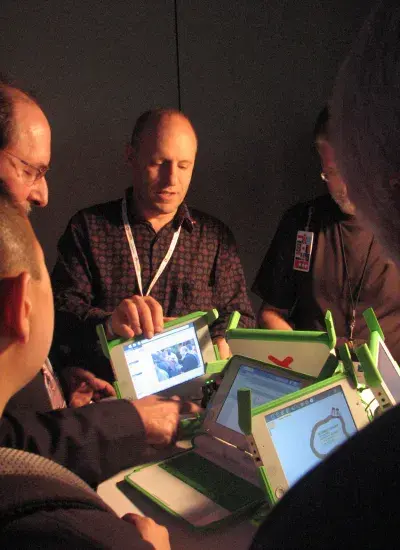Excubate: A new model of new technology business development

Speaker
Ted Selker
Associate Director of Mobility Research, Carnegie Mellon Silicon Valley
When
-
Where
Newell-Simon Hall 1305 (Michael Mauldin Auditorium)
Video
Video link
Description
The models of taking such innovations forward at the companies I worked with or at like IBM tend to be limited by the expectations of the product managers. The opportunities for taking innovations forward at MIT where I taught for 10 years can be limited by the academic stance.
Innovation cultures exist in self funded and venture funded entrepreneurial activities, universities, and large research labs. What are the various values and strengths of the different models for innovation business development This talk will expand beyond the problems of open innovation and offer a new entrepreneurial investment model which can increases innovation’s chances for success.
Excubation will support ideas and people though competitions to reduce risks of starting new technology companies. A prototyping team will create competing new ideas to find ones that could make great companies. The successful ideas then become part of open funded competitions to test market viability and teams that might take the company forward. The original prototyping team and serious business experts are part of evaluating and mentoring the participants to create successful technology companies.
Speaker's Bio
Dr. Ted Selker is Associate Director of Mobility Research at Carnegie Mellon Silicon Valley where he is currently teaching a course to support the campus’s directed research projects. He is well known for guiding, demonstrating and speaking about strategic emerging technology opportunities. He specializes in seeding strategic conversations and in creating targeted workshops to teach and guide invention and innovation. Ted spent ten years as an associate Professor at the MIT Media Laboratory where he created the Context Aware Computing group, co-directed the Caltech/MIT Voting Technology Project, and directed a CI/IDI: kitchen of the future/ product design of the future project. His work is noted for creating demonstrations of a world in which intentions are recognized and respected in complex domains, such as kitchens, cars, on phones and in email. Ted’s work takes the form of prototyping concept products supported by cognitive science research. His successes at targeted product creation and enhancement earned him the role of IBM Fellow and director of User Systems Ergonomics Research. He has served as a consulting professor at Stanford University, taught at Hampshire, University of Massachusetts at Amherst and Brown Universities and worked at Xerox PARC and Atari Research Labs.
Ted’s innovation has been responsible for profitable and award winning products ranging from notebook computers to operating systems. For example, his design of the TrackPoint in-keyboard pointing device is used in many notebook computers; his visualizations have made impacts ranging from improving the performance of the PowerPC to usability OS/2 Thinkpad setup to Google maps; his adaptive help system has been the basis of products as well. Ted’s work has resulted in numerous awards, patents, and papers and has often been featured in the press. Ted was co-recipient of the Computer Science Policy Leader Award for Scientific American 50 in 2004, the American Association for People with Disabilities Thomas Paine Award for his work on voting technology in 2006 and the Telluride Tech fest award in 2008.

